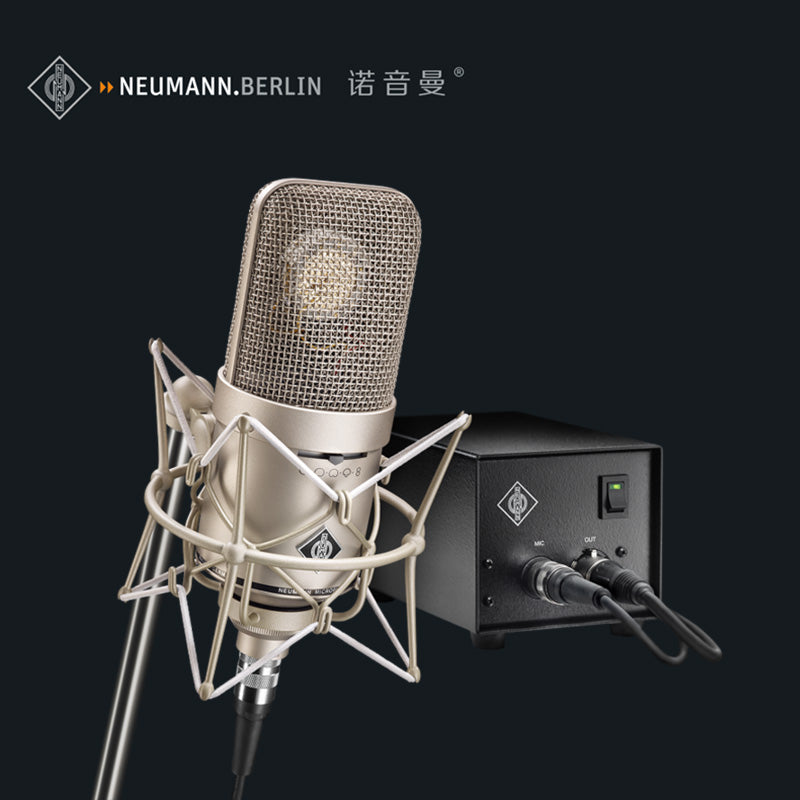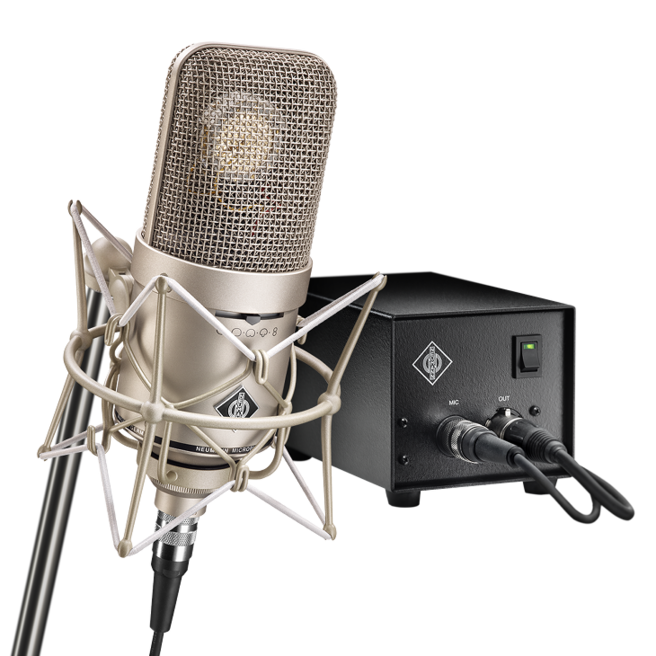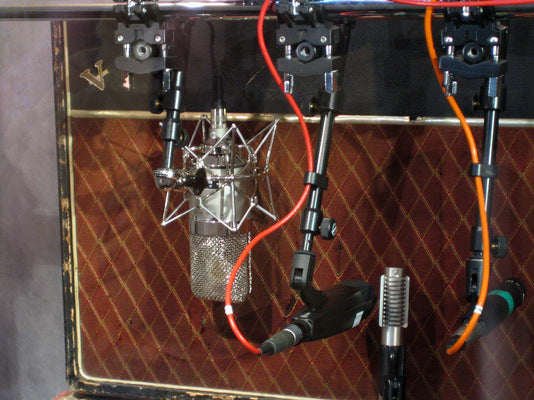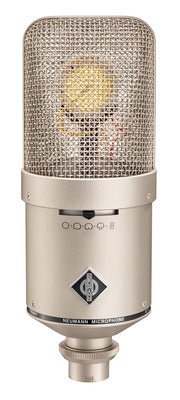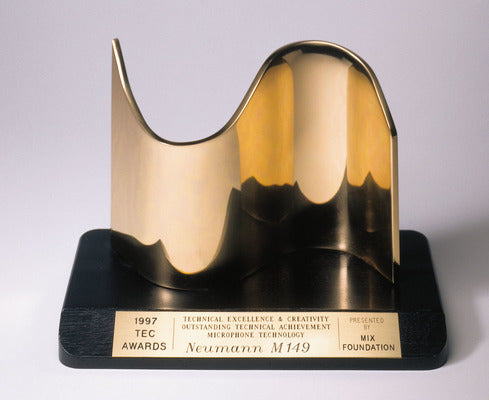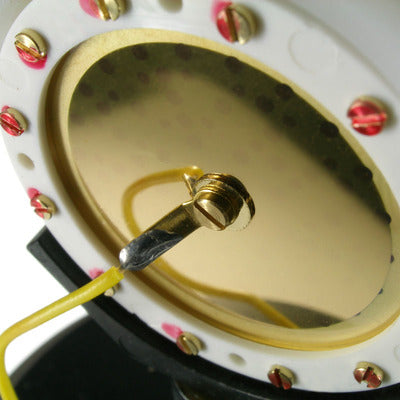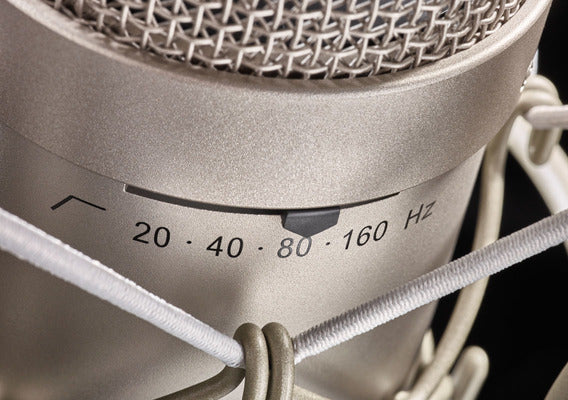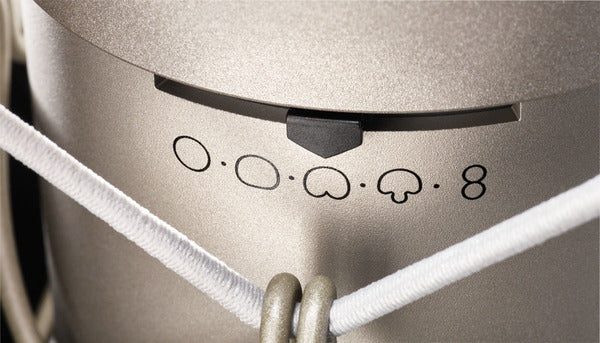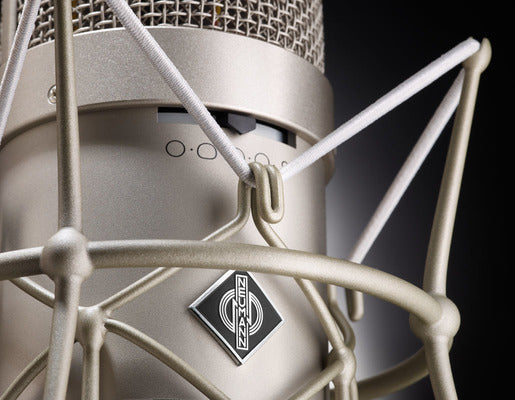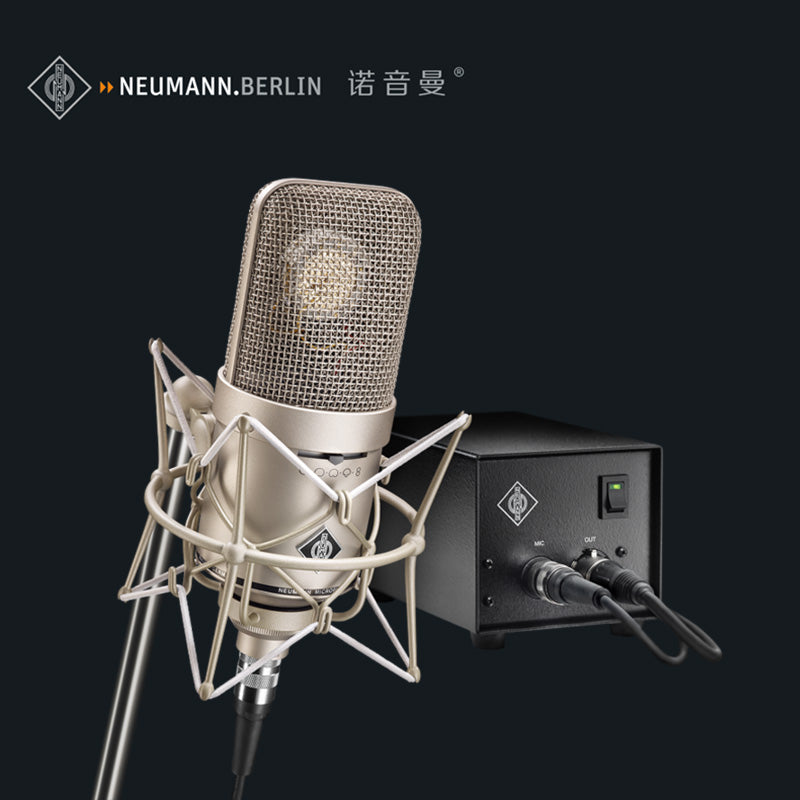
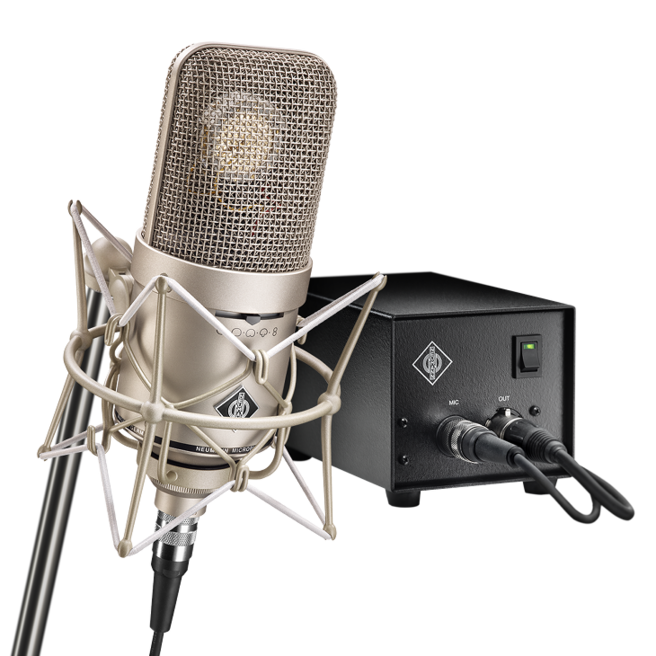
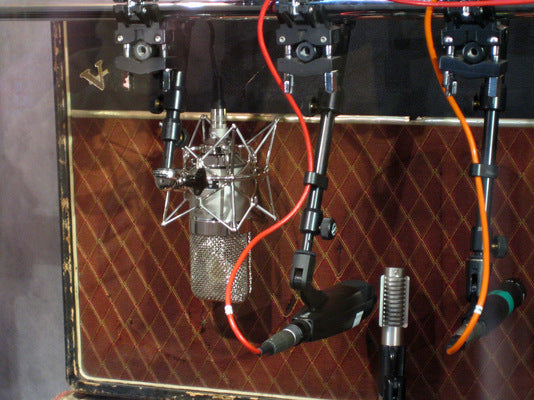
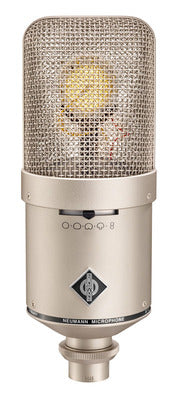
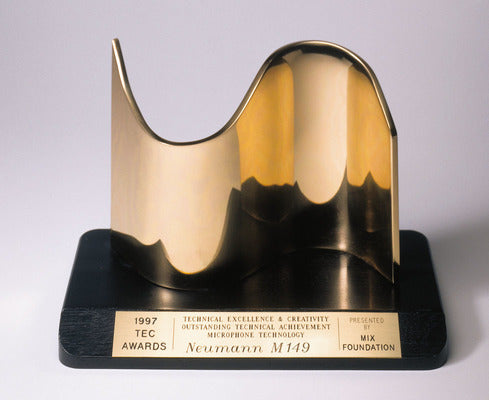
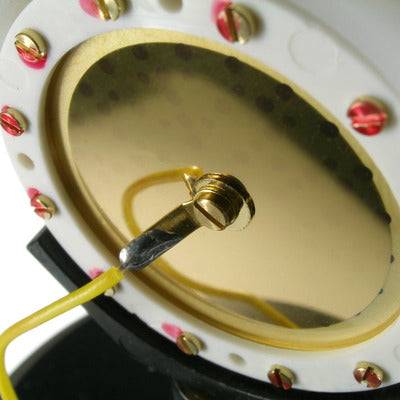
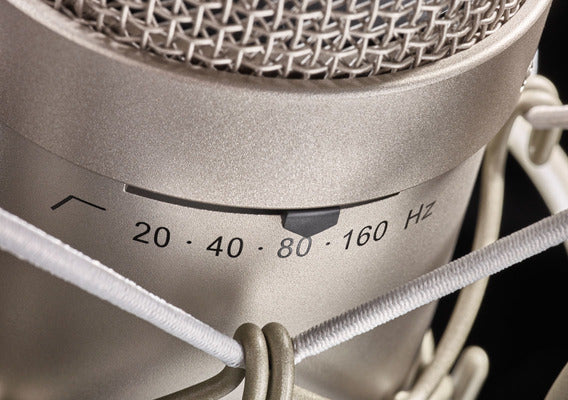
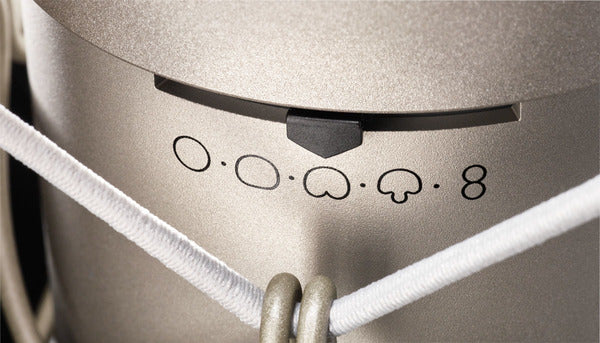
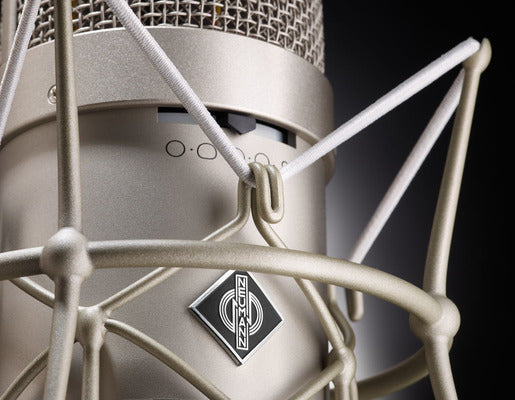
可摺疊的內容
Description
State of the Art Tube Microphone
The M 149 Tube is a modern version of Neumann’s famous M 49 microphone. Like its predecessor, it uses the classic K47/49 large diaphragm capsule in an acoustically open headgrille. The M 149 is a universal studio microphone with 9 selectable polar patterns. Its innovative transformerless tube circuit ensures optimal sound with lowest self-noise.
Classic Neumann Sound with 21st Century performance
The M 149 is a universal studio microphone with tube electronics in the tradition of the legendary M 49, the large diaphragm condenser microphone that raised the standard of audio recording in the 1950s and has shaped the sound of countless jazz and pop albums ever since. The M 149 continues in this tradition, augmenting the timeless fidelity of its predecessor with updated technology and improved performance specs.
The M 149 uses the same sound transducer as its famous predecessor, the classic K 47/49 large diaphragm capsule, renowned for its supreme balance and unmatched presence. This delicate dual diaphragm capsule is housed in a large, acoustically open headgrille, which minimizes internal reflections. The capsule signal is then amplified by a subminiature triode tube, specially selected for lowest noise and optimal transmission characteristics. The final stage is a high-precision, ultra-low distortion transformerless output stage, which preserves the full dynamics of the preceding tube circuit and is optimized for 21st century signal chains. The M 149 offers higher sensitivity and much lower noise than vintage tube microphones. And thanks its current sensing technology, which ensures optimal operating conditions for the tube, and its low output impedance, the M 149 can drive long cable runs of up to 300 m without transmission losses. It was this innovative combination of classic tube technology with state of the art Neumann engineering which earned the M 149 a prestigious TEC Award in 1997.
Truly Universal
The M 149 offers nine directional characteristics – omni, wide cardioid, cardioid, hypercardioid, figure-8, plus four intermediate positions – as well as a 7-position low cut (20 to 160 Hz in half-octave steps). This flexibility along with an exceptionally low self-noise figure of only 13 dB-A (cardioid mode) makes the M 149 a truly universal studio microphone for all applications. Not only is the M 149 a superb microphone for vocalists in any genre; unlike many other modern tube microphones, it is also an amazingly versatile microphone for a wide range of instruments, such as piano, acoustic and electric guitar, upright bass, percussion, drums overheads, as well as solo strings, brass and woodwind instruments. The M 149 is a premium microphone which will satisfy even the most demanding users.
- Same capsule as the legendary Neumann M 49
- Classic sound in nine directional patterns
- Seven-position low cut switch
- Tube circuit with extremely low self-noise
- Transformerless output stage
- Comes with power supply
Data and Diagrams
| Acoustical operating principle | Pressure gradient transducer |
|---|---|
| Directional Pattern | Omnidirectional, wide angle cardioid, cardioid, hypercardioid, figure-8 plus one intermediate position each |
| Frequency Range | 20 Hz ... 20 kHz |
| Sensitivity at 1 kHz into 1 kohm | 34/47/62 mV/Pa (Omni/cardioid/8) |
| Rated Impedance | 50 ohms |
| Rated load impedance | 1 kohms |
| Equivalent noise level, CCIR¹⁾ | 28/25/23 dB (Omni/cardioid/8) |
| Equivalent noise level, A-weighted¹⁾ | 16/13/11 dB-A (Omni/cardioid/8) |
| Typical SPL (tube characteristic) for K<0.5%²⁾ | 120 dB |
| Typical SPL (tube characteristic) for K<5%²⁾ | 136 dB |
| Signal-to-noise ratio, CCIR (re. 94 dB SPL)¹⁾ | 66/69/71 dB (Omni/cardioid/8) |
| Signal-to-noise ratio, A-weighted (re. 94 dB SPL)¹⁾ | 78/81/83 dB (Omni/cardioid/8) |
| Maximum output voltage | 18 dBu |
| Dynamic range of the amplifier, DIN/IEC 651, for THD < 0.5%²⁾ | 101 dB |
| Dynamic range of the amplifier, DIN/IEC 651, for THD < 5%²⁾ | 121 dB |
| Power supply | N 149 A |
| Matching connector | Microphone: DIN 8 F, Power Supply: XLR 3 F |
| Weight | approx. 730 g |
| Diameter | 70 mm |
| Length | 201 mm |
1) according to IEC 60268-1; CCIR-weighting acccording to CCIR 468-3, quasi peak; A-weighting according to IEC 61672-1, RMS
2) measured as equivalent el. input signal
Diagrams
Hypercardioid M 149 Tube


Cardioid M 149 Tube


Omni M 149 Tube


Figure 8 M 149 Tube


Wide Cardioid M 149 Tube



